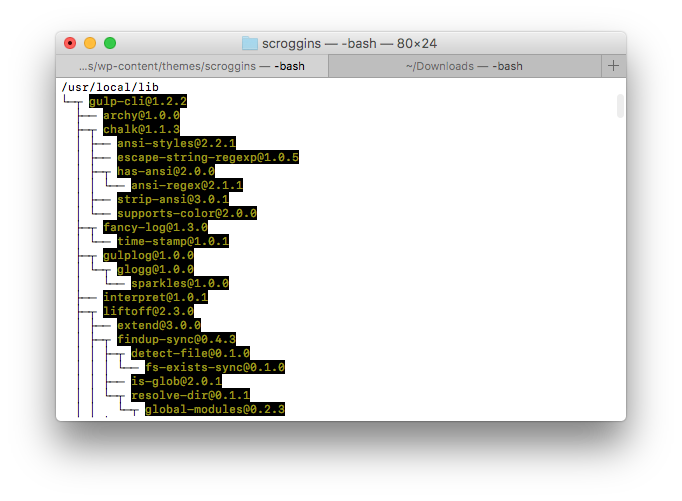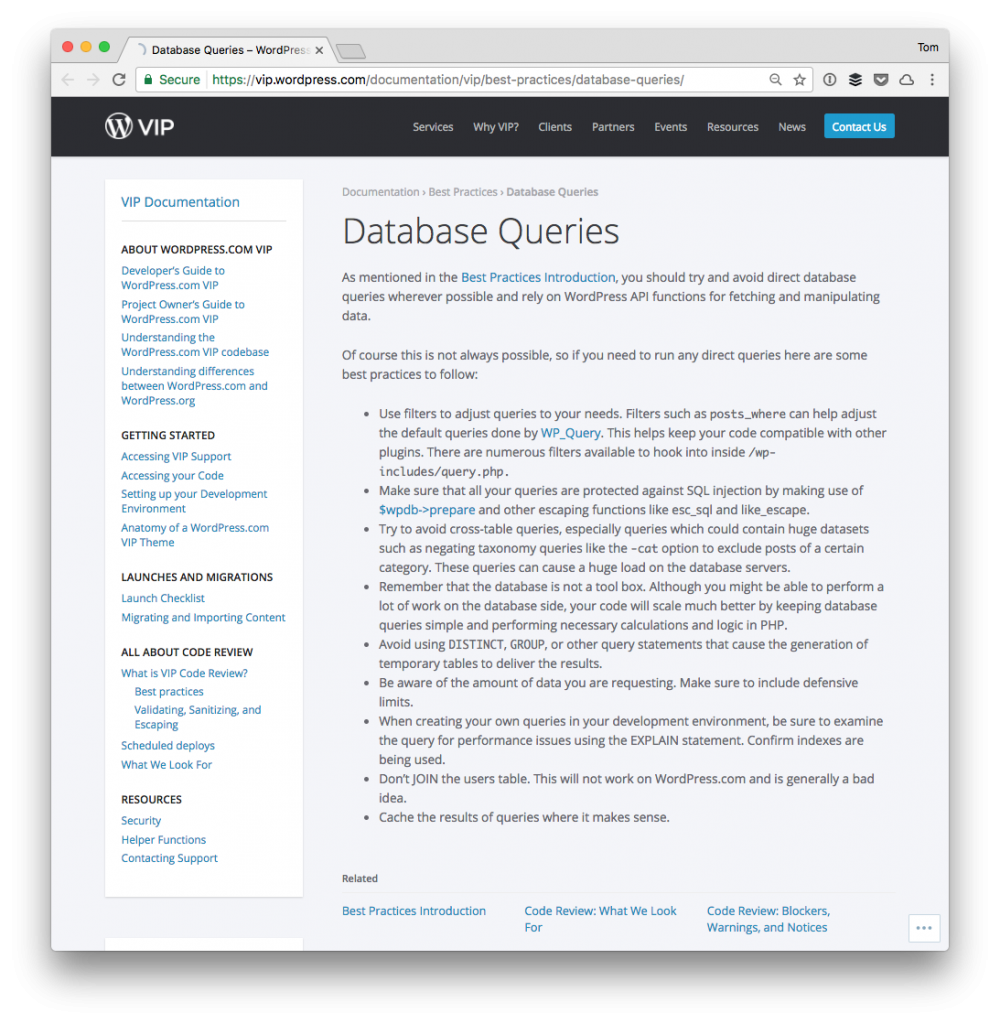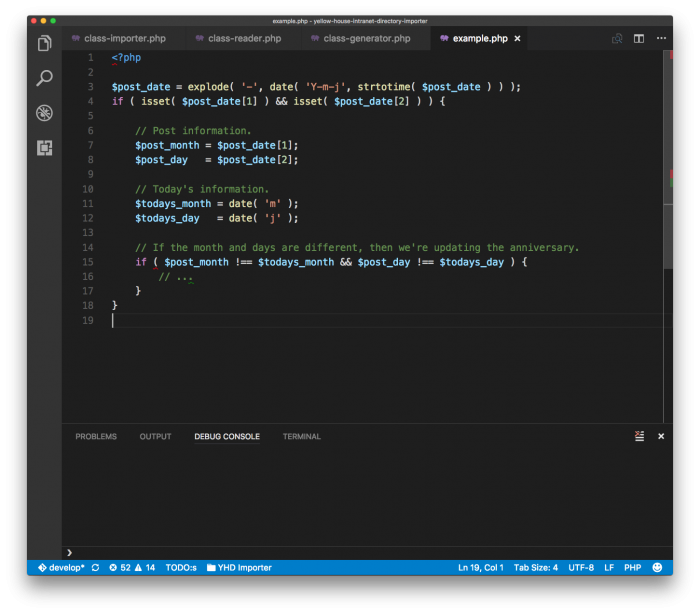Though I have a suite of tools I prefer to use on projects that I work on from the ground-up, the nature of contract work is that you’re not always able to use those tools.
Instead, you have to work using the tools provided by the client which usually come into play whenever you inherit a project from a previous developer.
To be clear, this isn’t knocking anyone’s choice of tools. I don’t have a position here or there on that. Instead, I think it’s import to know how to get up and running with some of those tools easily.

For example, we’ve been working on a project that requires Gulp which in turn requires Node which can be installed easily using Homebrew. It’s a lot of steps to work backward, right?
To get started with Homebrew, Node, and Gulp in WordPress development is pretty easy. I’ve outlined the steps below and done what I can to explain what each package does so you know what you’re installing and what you’re doing if or when you encounter a project like this.
Continue reading



